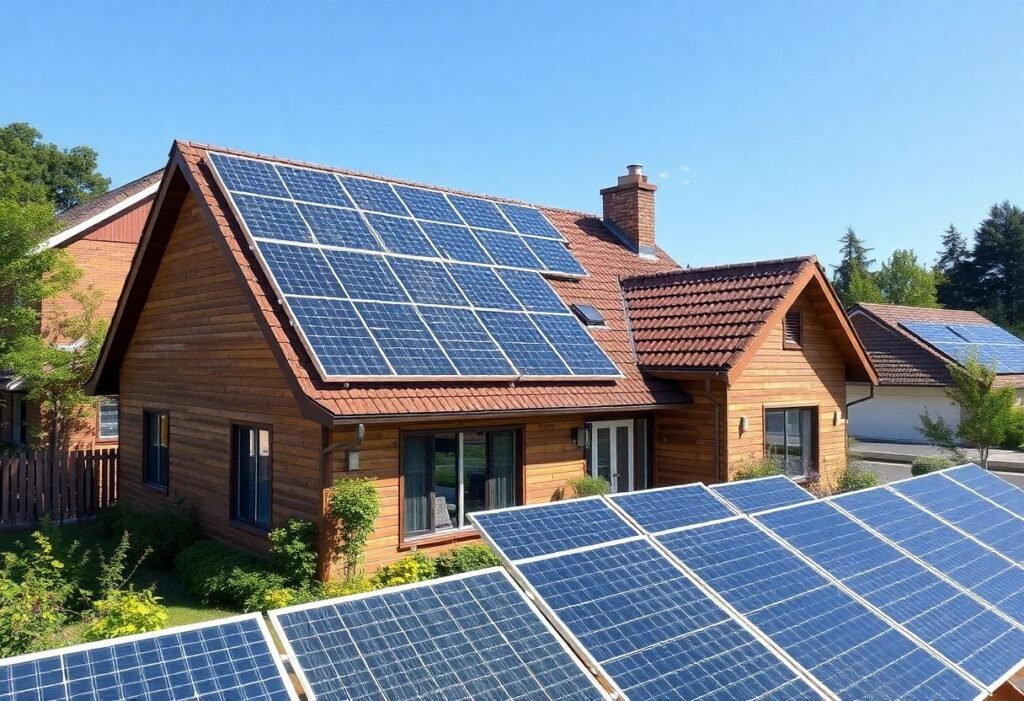Solar power is transforming the way homeowners use energy, providing an innovative solution that promotes sustainability and reduces electricity costs.
The Rise of Solar Energy in Residential Areas
In recent years, the adoption of solar energy has surged among homeowners looking for alternative energy solutions. Innovations in solar technology have made it possible for individuals to harness the power of the sun to generate electricity for their homes. This trend is not only economically beneficial, as it allows homeowners to save on their monthly electricity bills, but also plays a vital role in combating climate change. With falling installation costs and the availability of government incentives, more residents are investing in solar panel systems than ever before.
Technological Advancements Driving Adoption
One of the key factors in the growing use of solar energy is the rapid development of solar technology. Improvements in the efficiency of solar panels have led to greater energy output, even in less than ideal weather conditions. Furthermore, innovations such as solar batteries enable homeowners to store energy for use during peak hours or in times of outages, enhancing the reliability of solar power systems. These advancements make adopting renewable energy more accessible and practical for the average homeowner.
Benefits of Going Solar
Transitioning to solar energy presents numerous benefits. Homeowners can experience significant savings on their electricity bills while also increasing their property value. Moreover, adopting solar power minimizes reliance on non-renewable energy sources, thus contributing to lower greenhouse gas emissions. By switching to solar energy systems, homeowners can play their part in fostering a cleaner environment and advocating for sustainable practices.
Government Incentives and Support
To further encourage the use of solar energy, many governments offer incentives such as tax credits, rebates, and grants. These programs can significantly reduce the initial investment required for a solar energy installation. Public initiatives aiming to promote renewable energy adoption not only aid consumers but also foster a culture of sustainability within communities. This governmental support is crucial in making solar technology feasible for a wider audience.
Challenges and Considerations
While there are numerous advantages to solar power, potential adopters must also consider challenges such as upfront costs, installation logistics, and maintenance. An initial financial commitment may deter some homeowners, though financing options are increasingly available to ease that burden. Additionally, factors like roof orientation or local environmental conditions can impact the overall efficiency of solar panels. Addressing these concerns is vital for a successful transition to solar energy.
Looking Ahead: The Future of Solar Energy
The future of solar power in residential energy use looks promising. As technology continues to evolve, we can expect even greater efficiency and affordability in solar solutions. The trend towards decentralized energy production aligns perfectly with the increasing consumer interest in sustainable living. Ultimately, solar power represents a revolution in how households utilize energy, making it a cornerstone of the future energy landscape.
Disclaimer: This article is for informational purposes only and should not be considered as financial or legal advice.





















